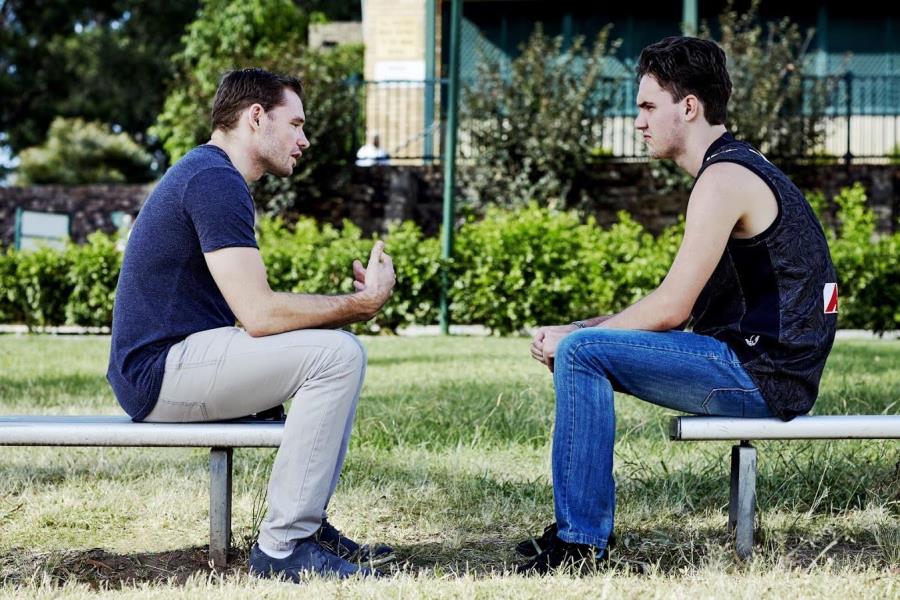Comprehending the Value of Forgiveness in Recovery Relationships
Forgiveness is typically watched as an easy act of letting go, yet its significance in recovery connections extends much beyond simple absolution. What continues to be to be uncovered is the profound effect forgiveness can have on private development and public consistency.
The Interpretation of Forgiveness
Although forgiveness is usually perceived as an easy act of releasing, its meaning encompasses a complex interaction of emotional and psychological procedures. At its core, mercy is the aware choice to launch feelings of animosity or revenge towards a private or team that has actually created harm. This procedure is not just concerning discharging the culprit; instead, it includes a profound emotional change that can result in personal growth and healing.
Forgiveness is multifaceted, often characterized by an individual's internal struggle to integrate their discomfort with the wish for peace. It requires recognizing the wrongs committed, refining the linked feelings, and eventually deciding to progress without the problem of displeasure. This option commonly involves a cognitive shift, where one reframes their understanding of the disobedience and the perpetrator, enabling compassion and recognizing to emerge.
Importantly, mercy does not suggest condoning the actions or failing to remember the crime; it is a purposeful act that prioritizes emotional health. By specifying mercy in this way, we can appreciate its function in helping with much healthier partnerships and promoting psychological durability, setting the phase for deeper expedition into its advantages.
Psychological Advantages of Forgiveness
Mercy provides substantial emotional advantages that can greatly affect a person's mental wellness and overall well-being. When a person selects to forgive, they actively release sensations of bitterness, anger, and rage, which can otherwise produce a hefty emotional worry. This release usually results in a decrease in anxiety and anxiousness, promoting a sense of tranquility and psychological stability.
Moreover, mercy fosters an enhanced capability for compassion and concern. By understanding the point of view of the wrongdoer, people can grow a deeper psychological durability, which enhances their capability to deal with future difficulties. This procedure not just improves psychological guideline yet additionally adds to a more positive overview on life.
In addition, flexible others can reinforce one's self-worth and self-regard. It enables people to redeem their individual power, damaging cost-free from the adverse cycles of victimhood - The importance of forgiveness. This newfound empowerment can result in healthier emotional feedbacks and more powerful interpersonal connections
Forgiveness vs. Reconciliation
The distinction between forgiveness and reconciliation is critical in recognizing the characteristics of recovery connections. Mercy is an inner procedure where a private chooses to let go of resentment and negative feelings in the direction of somebody who has caused harm. It is largely an individual journey, concentrated on emotional release and self-healing, allowing one to move on without bring the concern of past grievances.
In contrast, settlement includes restoring and bring back the relationship to a state of trust fund and shared respect. This procedure commonly requires open interaction, active involvement from both celebrations, and a commitment to attending to the underlying issues that caused the conflict. While forgiveness can take place individually, reconciliation requires the willingness of both individuals to participate in dialogue and pursue a shared understanding.
It is vital to note that forgiveness does not constantly lead to settlement. An individual may forgive another without deciding to bring back the relationship, particularly if depend on has been irrevocably harmed or if the relationship is considered harmful. Comprehending this difference enables individuals to navigate their feelings effectively and make notified choices concerning their partnerships.
Steps to Cultivate Forgiveness
Cultivating mercy is a deliberate process that includes a number of essential actions targeted at facilitating psychological healing. The primary step is acknowledging the pain brought on by YOURURL.com the infraction. Recognizing one's sensations is essential, as it allows individuals to refine their emotions really.
Next, showing on the occurrence and understanding its impact can give clarity. This representation ought to include examining the motivations behind the wrongdoer's actions and identifying that everyone is imperfect.
The third action entails making an aware decision to forgive. This choice is important, as it signifies a determination to let go of animosity and relocate ahead.
Consequently, expressing sensations in a constructive fashion can be beneficial - The importance of forgiveness. Whether via journaling, chatting with a trusted close friend, or looking for therapy, articulation of emotions can help in the mercy trip
Real-Life Instances of Mercy

In one more example, a close-knit group of friends dealt with a significant break after one member accidentally shared a private secret. Instead of nurturing resentment, the impacted close friend determined to forgive, comprehending the value of valuing the relationship over navigate to these guys the error. This choice encouraged open dialogue and inevitably enhanced their link.

Conclusion
Finally, forgiveness plays a crucial duty in the healing of partnerships by helping with the launch of negative feelings and fostering compassion. By comparing mercy and reconciliation, people can take part in a useful procedure that improves psychological well-being. Carrying out actions to cultivate forgiveness can cause transformative results, strengthening links and advertising a supportive atmosphere. Inevitably, the practice of More Info forgiveness acts as a catalyst for personal development and the nurturing of healthier interpersonal characteristics.

Comments on “The Importance of Forgiveness in Building Healthier Relationships”